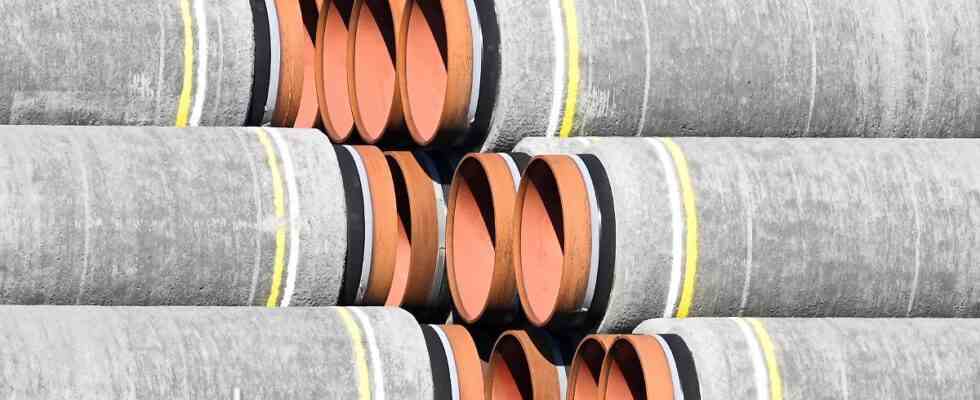Also with Scholz’ signature
Nord Stream 2 paper: Old government wiped away concerns
10/13/2022, 12:18 am
When the approval for the Nord Stream 2 pipeline stalled at the end of 2021, the Merkel government launched an expert opinion that seems at least naïve today. It succinctly dismisses concerns about energy dependency on Russia, for example. The current chancellor is one of the signatories.
A previously kept secret report by the former federal government came to the conclusion last December that the Nord Stream 2 gas pipeline, which has since been destroyed, would improve security of supply. The central sentence in the 54-page statement, from which “Spiegel” quotes, is: “The gas and electricity supply of the Federal Republic of Germany will not be endangered.” “The special circumstances of the individual case” did not change that, nor did the “principle of energy solidarity” in the EU.
Only two days before the end of the regular term of office did the then Federal Minister of Economics Peter Altmaier send the report to the Federal Network Agency so that the approval process for the new line could continue. The Federal Ministry of Finance of today’s Chancellor Olaf Scholz also signed the explosive report.
From the statement that the “EU import dependency has increased significantly” and is now “almost 90 percent”, the Ministry of Economic Affairs did not conclude that Nord Stream 2 would make the dependency even greater, even more risky. But: “In this context, the Nord Stream 2 pipeline increases European security of supply, as it enables gas supply from new fields on the Yamal Peninsula.”
Ukraine and Poland expressed concerns
The Economy Ministry also brushed aside concerns raised by Ukraine and Poland during the hearing process for the report. The Ukrainian state gas company, for example, pointed out that Gazprom cut delivery volumes through the Ukrainian pipelines in autumn 2021. The Poles reminded the Economy Ministry that in the gas dispute with Ukraine in 2008/2009 and in 2014 Russia had already shown willingness to use gas as a political tool.
In addition, Gazprom is “directly intertwined with the Russian government due to personnel overlaps and the latter is therefore able to exert political pressure on the member states via Gazprom”. The Ministry of Economics replied that it had “examined these indications, but did not see sufficient evidence for a specific threat to the security of gas supply through the certification”.

